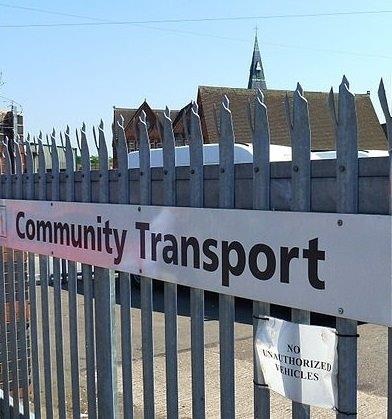
Will Traffic Commissioner ruling lead to community transport operators being forced to choose PSV over permits?
By TAS consultants John Atkins and Meera Rambissoon.
 The Welsh Traffic Commissioner has published an unprecedented judgement on a community transport (CT) operator in South Wales – taking away their section 19 and 22 permits due to contracts operated under them being judged as commercial.
The Welsh Traffic Commissioner has published an unprecedented judgement on a community transport (CT) operator in South Wales – taking away their section 19 and 22 permits due to contracts operated under them being judged as commercial.
DANSA Ltd was called to a public inquiry in April this year to account for their use of section 19 and 22 permits for the delivery of local authority home to school contracts. The publication of the decision in August 2019 states that DANSA did in fact hold a PSV Operator Licence (‘O’ licence), but one which was not deployed for the contract work.
Nick Jones, Traffic Commissioner for Wales, said that to continue to be exempt from operator licensing under EU Regulation 1071/2009, an operator must be “exclusively non-commercial” – a definition which in his view prevented CT operators competing for and holding home to school contracts, which he stated “tips the balance so that I cannot conclude that DANSA Ltd is exclusively non-commercial”. In effect, Jones concluded that DANSA Ltd must, therefore, be considered in part a commercial undertaking, and therefore no longer able to hold any permits – that is, if any of the operation is deemed commercial, then all of it is.
Jones stated that: “guidance issued by the Department for Transport (DfT) indicates that an entity cannot hold both permits issued under sections 19 and 22 of the Transport Act 1985 and at the same time hold a PSV operator’s licence issued by the traffic commissioner.”
We believe this ‘either/or’ absolute sets a new precedent and makes real the position set out in the DfT Guidance (a letter from the DfT’s Stephen Fidler, 31 July, 2017). It raises questions for a number of CTs. In DANSA’s case the choice has been made for them – all of its eighteen section 19 permits and fourteen section 22 permits are due to be revoked on 31 December 2019 on the basis that the CT will have geared up for a full PSV operation by then.
Following the DfT’s announcement in 2017 that the permit system was to undergo wholescale review, many CTs have been planning to set up trading subsidiaries to host commercial operations under full PSV regulations as a means of using local authority contracts to support their core permit work.
“But the stark choice for CTs with existing PSV licences has not perhaps been anticipated, and we think there are at least 50 CT charities who currently hold both permits and a valid ‘O’ licence, and require both types to continue their operations,” commented John Atkins, former community transport manager and Principal Consultant for TAS.
“It’s not simply case of a CT charity setting up a trading company and then transferring its existing PSV licence to the new company – because this is not actually possible,” John added. “The new company has to apply afresh to the traffic commissioner for an ‘O’ licence, prove independent financial standing, and potentially face additional, extended and unwelcome scrutiny.”
The TAS Partnership has been assisting CT operators to make strategic changes to their business models to reduce the current uncertainty they face. TAS has now developed a package of support and guidance for community transport operators who are faced with these very difficult challenges.
For more information or guidance about any of these issues, please contact John Atkins, Principal Consultant at TAS, on 01772 204988 or email John.Atkins@TASpartnership.com


